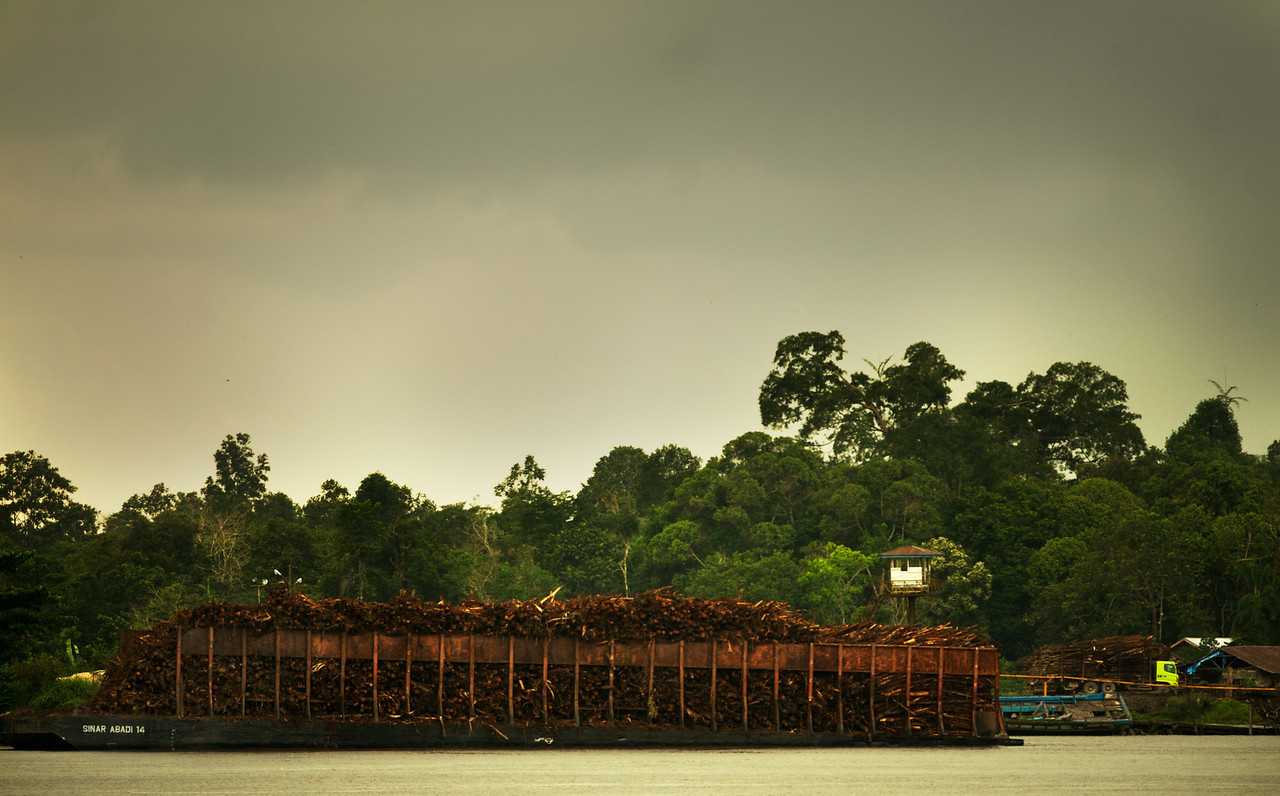The average North American touches paper countless times a day. From the morning newspaper to cash register receipts to packaging for a take-out lunch, paper is part of so many of our daily activities we can easily take it for granted. Yet the true environmental and social costs of these everyday products often go unnoticed.
 Sadly, the pulp and paper industry is one of the key drivers of forest loss in the world today. Indonesia has become ground zero for land grabbing and human rights violations, greenhouse gas emissions and species loss linked to the pulp and paper industry. The cleared forests of Sumatra and Borneo are turned into copy paper, books, product packaging, shopping bags and toilet paper for consumers in the United States, Asia, Africa and Europe. The global network of corporate supply chains connects all of us to deforestation but it also gives us the tools and the opportunity to take effective action to stop it.
Sadly, the pulp and paper industry is one of the key drivers of forest loss in the world today. Indonesia has become ground zero for land grabbing and human rights violations, greenhouse gas emissions and species loss linked to the pulp and paper industry. The cleared forests of Sumatra and Borneo are turned into copy paper, books, product packaging, shopping bags and toilet paper for consumers in the United States, Asia, Africa and Europe. The global network of corporate supply chains connects all of us to deforestation but it also gives us the tools and the opportunity to take effective action to stop it.
Rainforest Action Network specializes in uncovering and exposing links between irresponsible policies and practices and deforestation, and in applying firm and direct pressure to industry laggards that have yet to clean up their supply chain act. RAN also works with companies that are ready and willing to be rainforest advocates, working to develop and implement solutions to reshape business as usual so that human rights are respected and consumer concerns about local communities and the environment are addressed.
Impacts of the Paper Industry
In many forest-rich countries like Indonesia, some of the world’s most biologically diverse forests are being significantly altered or cleared and replaced by pulp plantations that drastically alter ecological and cultural values. Indigenous and forest-dependent communities’ lands and livelihoods are being uprooted, and iconic wildlife species like the Sumatran tiger and Sumatran elephant are being driven to the edge of extinction by the loss of huge swaths of critical rainforest habitat.
The pulp and paper industry is a globally significant source of carbon pollution contributing to climate change. Deforestation has elevated Indonesia to the status of one of the largest greenhouse gas-emitting nation in the world – with about 80% of the country’s emissions stemming from changes in land use leading to deforestation.
A tragic result of all of this environmental destruction and pollution is human suffering and social conflict across Southeast Asia. Rainforest Action Network is supporting the growing movement in Indonesia for land tenure reform, as Indigenous and local communities have seen their customary land and human rights ignored and violated by pulp and paper companies that cut their forests and evict them from the land many have depended on for generations. RAN is working with Indonesian allies to identify community demands, undertake investigations into abuses, support restitution and resolution and to leverage market pressure to address these problems.
A Vision for Reform
Rainforest Action Network, along with the other members of the Environmental Paper Network, endorses the Common Vision for Transforming the Paper Industry. Together, we call upon the industry to adopt the ‘Precautionary Principle’ with regard to use of natural resources and chemicals throughout the production process and to refrain from activities that could cause irreparable harm to human health and the environment. It is critical that the industry respects, upholds, redresses violations of human rights, workers’ rights, and the individual and collective rights of Indigenous Peoples and forest-dependent communities, including land tenure rights and the right to free, prior and informed consent.
Resources for Activists, Companies, and Consumers
While it may be surprising to realize, the paper in your home, school, and workplace may still be connected to rainforest destruction. Below are resources you can use to increase responsible purchasing in your community.
Promote Environmentally Sound Paper Use in Your Community
- “What You Can Do to Promote Environmental Papers.” – Conservatree.
- “RePaper Project.” – Environmental Paper Network
Resources for Companies:
- “Our Common Vision for the Paper Industry.” Environmental Paper Network
- “Applications for Paper and Pulp Purchasers.” Environmental Paper Network
- “The Root of the Problem – Drivers of Deforestation.” Union of Concerned Scientists
